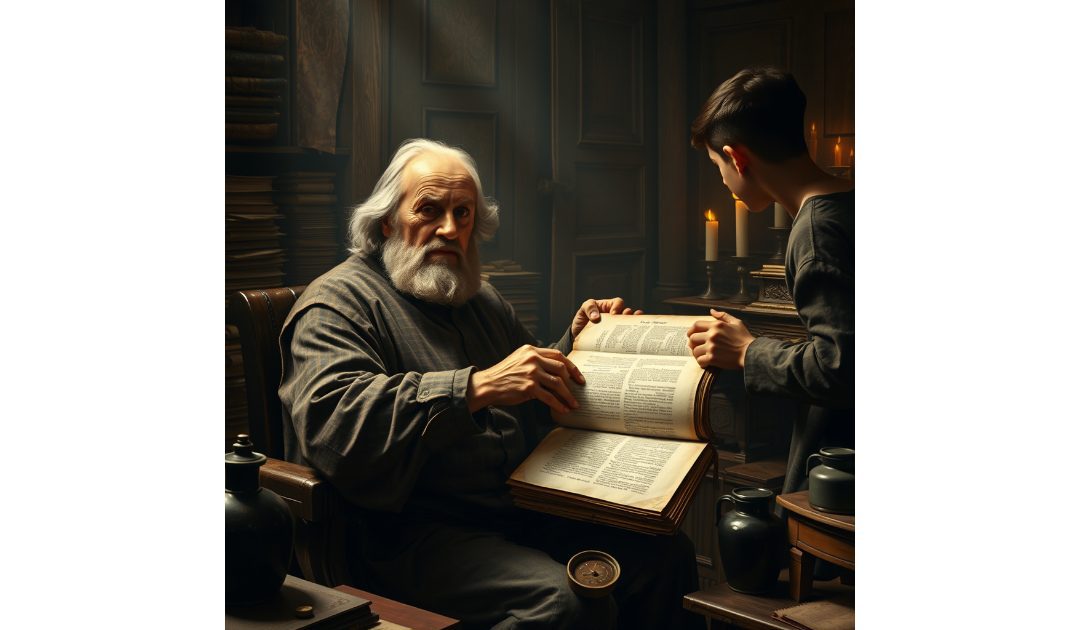On the 27th of April, 1667, John Milton sold Paradise Lost to a printer for £10. Milton was born on the 9th of December, 1608, into a family that valued education and the arts. His father, a scrivener and composer, provided him with the resources and encouragement to pursue his intellectual interests. Milton’s education began at St. Paul’s School in London and continued at Christ’s College, Cambridge, where he studied classical languages, literature, and philosophy. He was a voracious reader, absorbing the works of Greek and Roman authors and the Bible, which would later influence his own writings.
Milton’s extensive travels across Europe in his youth played a pivotal role in shaping his worldview and literary career. In 1638, Milton embarked on a European tour, a common practice for scholars of his time seeking to broaden their horizons. His travels took him through France, Italy, and Switzerland, where he engaged with leading intellectuals and absorbed diverse cultural influences. In Italy, Milton was warmly received by scholars and artists, and he visited cities such as Florence, Rome, and Venice, immersing himself in the rich cultural heritage of the Renaissance. It was in Florence that he met the astronomer Galileo Galilei, an encounter that profoundly influenced him, particularly in his portrayal of cosmic exploration in “Paradise Lost.”
Milton’s life was deeply intertwined with the political and religious upheavals of his time. He was a staunch Puritan, advocating for religious reform and freedom of conscience, principles that were central to the English Civil War. Milton served as a civil servant under Oliver Cromwell, and his political writings, including “Areopagitica,” a passionate defence of free speech, were influential in shaping public discourse. Milton’s political engagement came at a personal cost. With the restoration of the monarchy in 1660, he was briefly imprisoned and lived the rest of his life out of favour with the new regime. Yet, these experiences enriched his writing, giving it depth and urgency.
Milton’s magnum opus, “Paradise Lost,” is an epic poem in blank verse that narrates the biblical story of the Fall of Man. Published in 1667, it explores themes of free will, obedience, and redemption. The poem is notable for its complex portrayal of Satan, who, despite his rebellion against God, is depicted with a degree of sympathy and grandeur. Milton’s Satan is a tragic hero, embodying the existential struggle for identity and meaning.
“Paradise Lost” is a work that defies easy categorisation. Its language is rich and evocative, its scope grand and cosmic. Milton’s use of blank verse, unrhymed iambic pentameter, allows for a flexibility and musicality that mirrors the epic’s vast themes. The poem’s opening lines, “Of man’s first disobedience, and the fruit / Of that forbidden tree,” immediately set the stage for a narrative that is both timeless and universal.
Following “Paradise Lost,” Milton published “Paradise Regained” and “Samson Agonistes” in 1671. “Paradise Regained,” a shorter epic, focuses on Christ’s temptation in the wilderness, presenting a narrative of spiritual triumph and renewal. “Samson Agonistes,” a tragic drama, draws parallels between the blinded Samson and Milton’s own experience of loss and suffering, offering a meditation on faith and resilience.
John Milton experienced the joys and challenges of marriage three times during his lifetime. His first marriage was to Mary Powell in 1642, a union that began under contentious circumstances. Mary, who was only 17 at the time, came from a Royalist family, which initially caused friction with Milton, a staunch Parliamentarian. Their early separation, with Mary returning to her family for several years, reflects the strains brought about by their differing backgrounds and the broader political turmoil of the period. Nevertheless, they later reconciled, and Mary bore Milton four children before her untimely death in 1652.
Following Mary’s passing, Milton married Katherine Woodcock in 1656. This marriage, although brief, was reportedly a happy one. Katherine, however, tragically died in childbirth less than two years later, along with their infant daughter. This profound loss deeply affected Milton, inspiring his poignant sonnet, “Methought I Saw My Late Espousèd Saint,” where he expresses his grief and longing for his departed wife.
In 1663, Milton married for the third and final time to Elizabeth Minshull. This marriage proved to be a stable and supportive partnership. Elizabeth was 30 years his junior and proved to be a devoted companion, caring for the blind poet until his death in 1674. Through these personal experiences of love, loss, and companionship, Milton’s works continued to reflect a profound understanding of human relationships.

